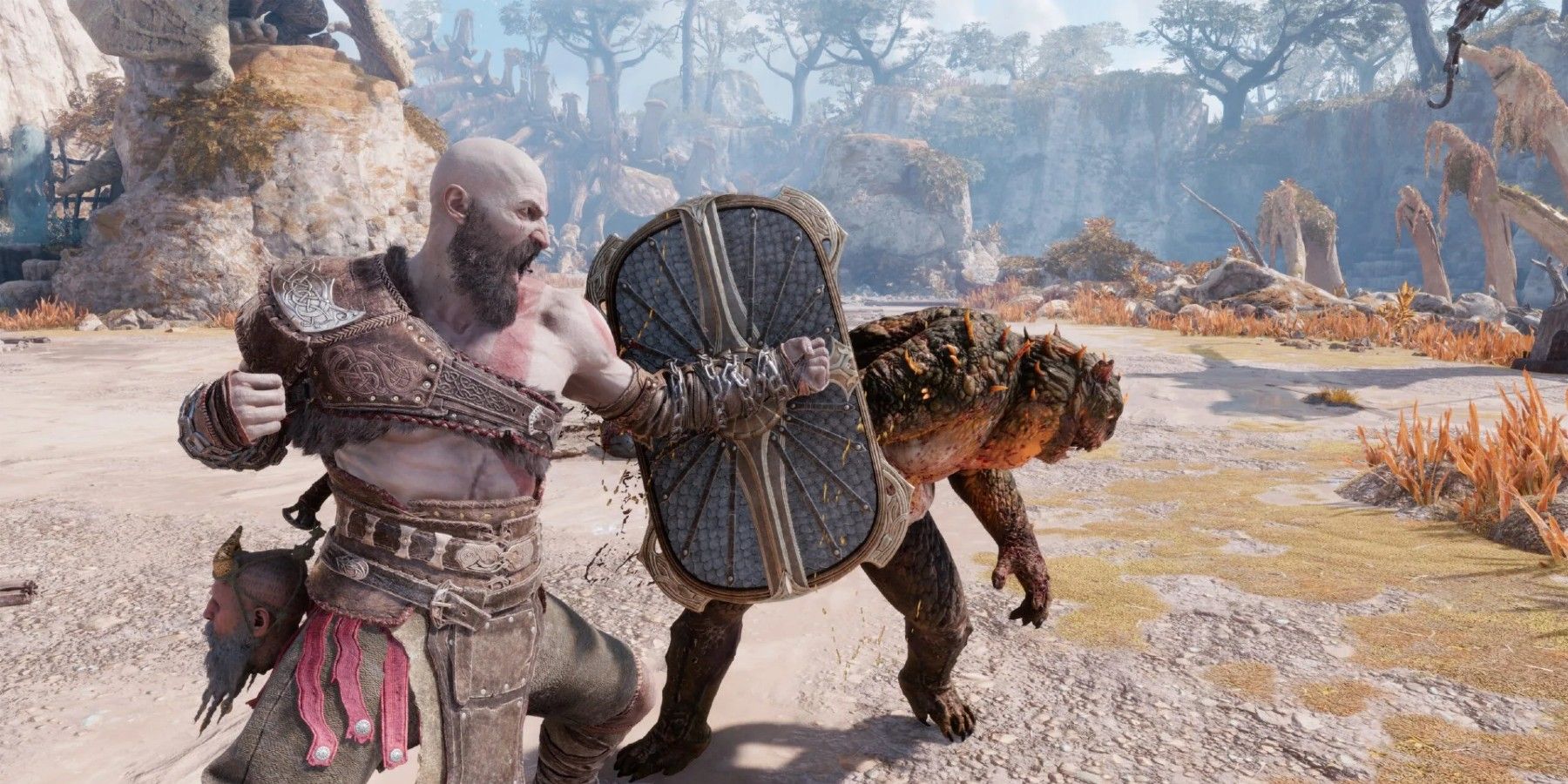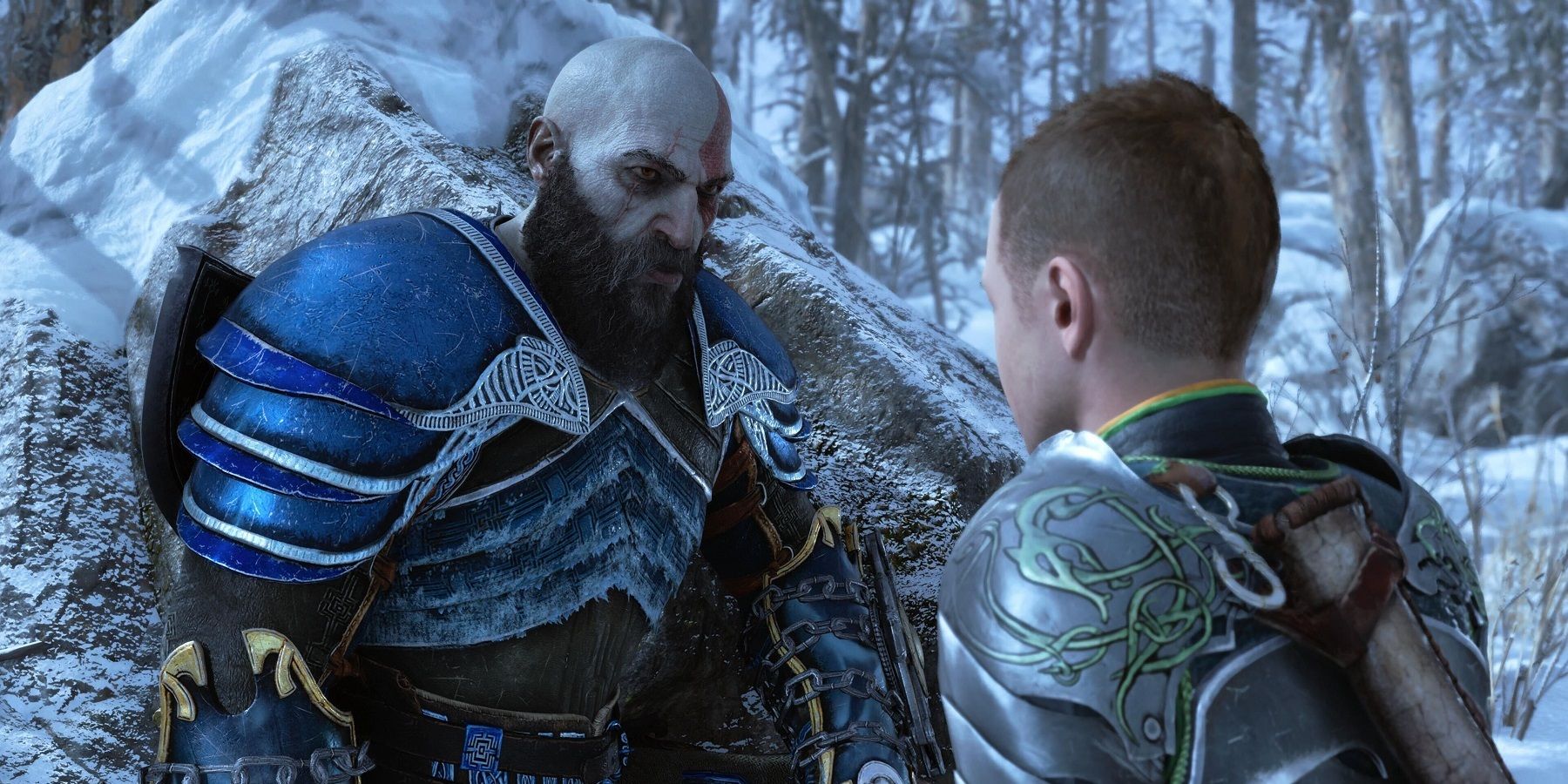PLEASE NOTE: This article contains SPOILERS for God of War Ragnarok. Proceed at your own risk.Back in 2018, Santa Monica Studios released God of War, a semi-reboot of the franchise that moved Kratos from his Greek mythology roots to a new Norse mythology setting. While most of 2018's God of War focuses on new characters and plot beats, Kratos' past is unearthed towards the end of the game, and he starts to reclaim some of his past deeds, teaching Atreus that they are more than their past mistakes. In God of War Ragnarok, Kratos continues this lesson and actually seems to reclaim more of his Spartan identity.
Despite trying his hardest to bury his past, Kratos was simply unable to do so in 2018's God of War, and in God of War Ragnarok, he's not really trying anymore. In fact, Kratos can actually be seen reclaiming some of his past identity, passing it down to Atreus, and talking about his life in Greece before he met Faye in Midgard. Though this is certainly still the Norse saga, Kratos still maintains a few key elements of his Spartan identity.
How Kratos Maintains his Spartan Identity in God of War Ragnarok
One of the biggest ways in which Kratos maintains his Spartan identity in God of War Ragnarok is by telling stories of his past life. A good few hours into the game, Kratos is discussing the concept of loss with Freya. Still spiteful of Kratos killing Baldur, her child, Freya exclaims that Kratos knows nothing about losing a child and how that feels. Kratos calmly replies that he knows exactly what it feels like, and tells Freya about his past family in Sparta, who he was tricked by the gods into killing, believing that they were enemy soldiers.
At a different point in God of War Ragnarok's story, Kratos briefly discusses his brother Deimos. When discussing forgiveness, Kratos mentions that his brother Deimos was taken by the Greek gods when they were children, and he resented Kratos for not coming to rescue him. In talking about his old life in Greece, Kratos shows that he no longer fears the past and is more willing to use those painful moments as lessons to teach himself and those around him, reclaiming his Spartan identity and using it to shape who he is now.
One aspect of Kratos' Spartan past that he couldn't hide from was his physical scars. Kratos' body is covered in various scars and marks gained over the years, with some of the most prominent being those he obtained during his fights with the Greek gods. The scar above his right eye, for instance, was obtained during a fight with Ares when he was just a child when Kratos tried to save Deimos from being captured. The large scar on his stomach is from when Zeus impaled him with the Blade of Olympus. Of course, Kratos also has his arm scars, where the Blades of Chaos' chains had caused permanent burn marks. All of these scars, especially those on his arm, remind Kratos of his past and his Spartan identity, again teaching him important lessons that he carries forward during God of War Ragnarok.
Kratos also retains his Spartan identity by teaching Atreus a few words of Greek. During a rare moment of calm in the game, Kratos teaches Atreus a descriptive word in ancient Greek, used to describe the environment they're in at that moment. Though it's just one word, it once again cements the fact that Kratos had this whole life before this Norse saga, and that he carries his Spartan identity with him now.
God of War Ragnarok is available now on PS5 and PS4.


